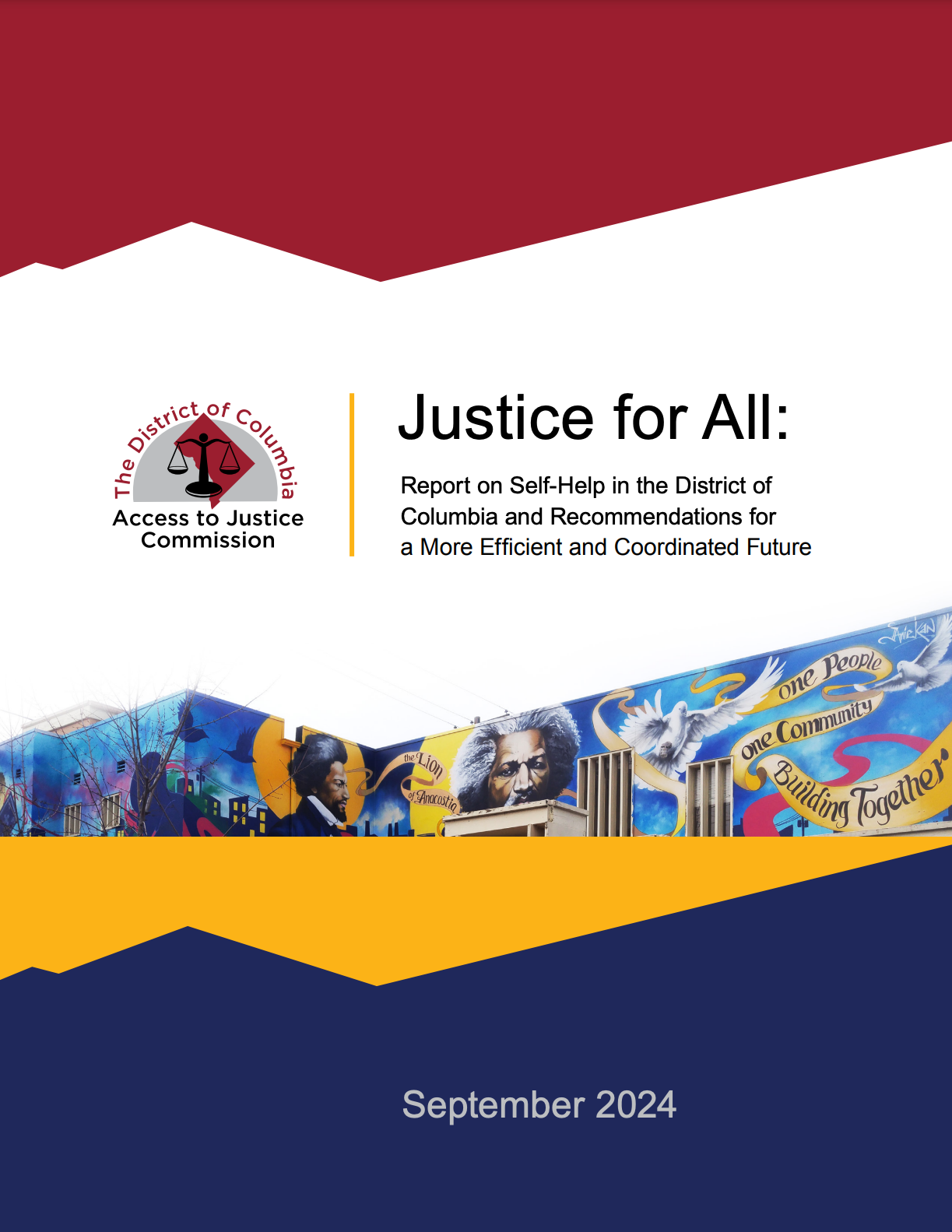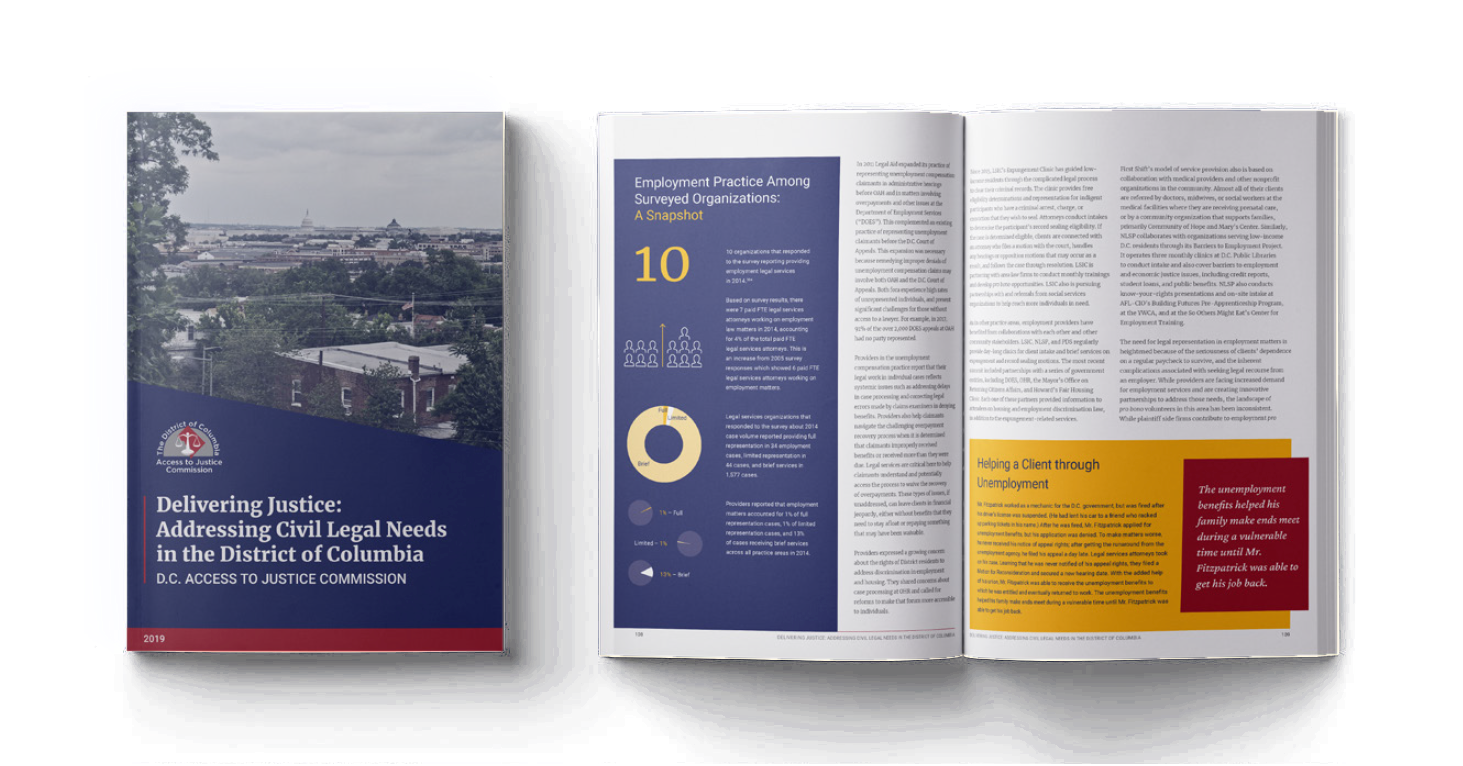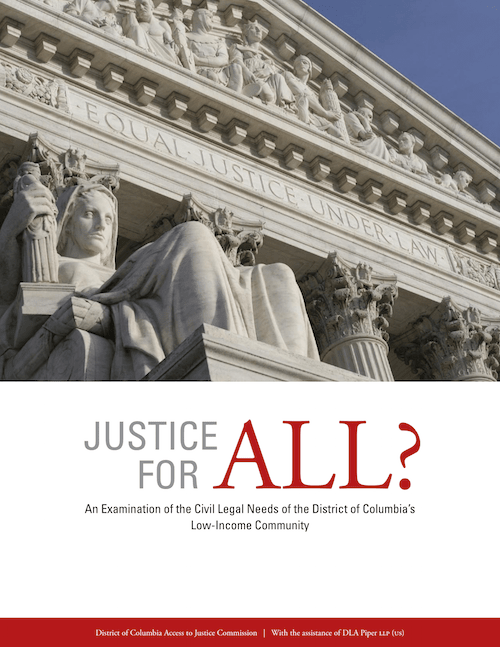Justice for All: Report on Self-Help in the District of Columbia and Recommendations for a More Efficient and Coordinated Future
In 2024, the Commission released Justice for All: Report on Self-Help in the District of Columbia and Recommendations for a More Efficient and Coordinated Future. The report:
- describes what self-help is and why it is important to further access to justice;
- summarizes the self-help materials currently available in D.C.;
- provides an overview of the Self-Help Work Group’s activities to date;
- outlines the Work Group’s learnings thus far; and
- recommends a centralized approach to maintaining and making available self-help materials in D.C.
Click here to read Justice for All: Report on Self-Help (print version, no hyperlinks)
Click here to read Justice for All: Report on Self-Help (online version, with hyperlinks)
Strengthening Estate Administration in the District of Columbia (with Council for Court Excellence)
In 2022, the Commission released Strengthening Estate Administration in the District of Columbia, a joint report with the Council for Court Excellence. The report, created with support from the State Justice Institute, includes practical recommendations spanning 20 different topic areas, including:
- Expanding Community Education on Estate Planning and Probate Administration;
- Simplifying Transfers of Certain Property and Notice Requirements;
- Increasing Access to Self-Help Materials and Legal Advice;
- Adjusting Levels for Allowances, Reimbursements, and Small Estates; and more.
Delivering Justice: Addressing Civil Legal Needs in the District of Columbia
In 2019, the Commission released Delivering Justice: Addressing Civil Legal Needs in the District of Columbia. The report documented the evolution of civil legal needs and services in the District over the 10 years since the publication of the Commission’s 2008 report, Justice for All? An Examination of the Civil Legal Needs of the District of Columbia’s Low-Income Community, and included strategies for increasing access to justice in the future.
Rationing Justice Report
In November 2009, the Commission and the D.C. Consortium of Legal Services Providers released a report entitled, Rationing Justice: The Effect of the Recession on Access to Justice in the District of Columbia. The report detailed the dramatic impact of the economic downturn on the provision of legal services in the District. The recession greatly increased the number of clients seeking assistance and the urgent nature of the problems they are experiencing. At the same time, due to a steep decline in funding, the legal services network lost 25% of its revenue, causing it to shed approximately 12% of its attorneys and nearly 40% of its non-legal staff. As a result, thousands of low-income clients did not receive critical legal services.
Civil Legal Needs Report
On October 7, 2008, the Commission released a comprehensive civil legal needs report, Justice for All? An Examination of the Civil Legal Needs of the District of Columbia’s Low-Income Community. The report studied the legal needs in nine areas (consumer, education, employment, estate planning, family, public benefits, health/disability, housing, and immigration) and the legal services network’s capacity to meet those needs. The report found that in every area examined, there were vastly more clients who needed help than services available to assist them.
The report draws upon detailed surveys completed by legal services providers, pro se statistics from the D.C. Courts and Office of Administrative Hearings, interviews with community-based organizations throughout the District, and social science reports. It provides specific recommendations on how to improve the provision of civil legal services in the District.






 Washington Graphic Services
Washington Graphic Services